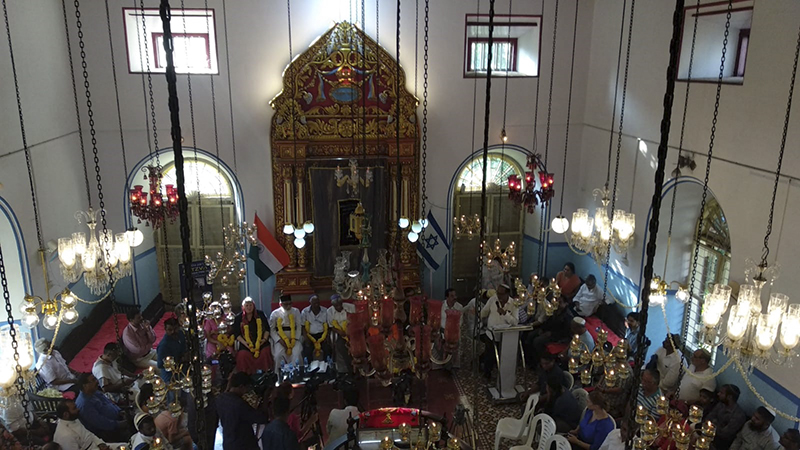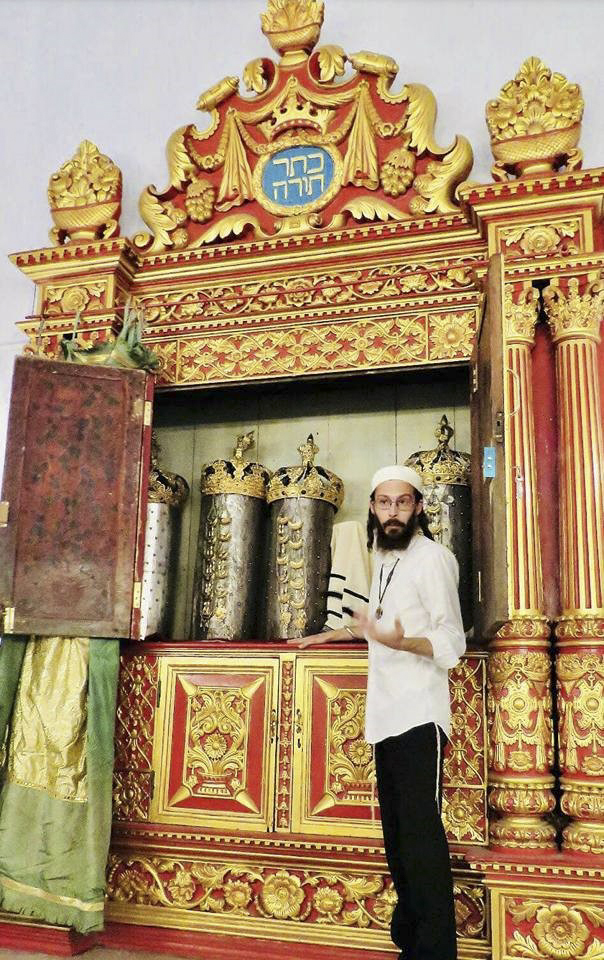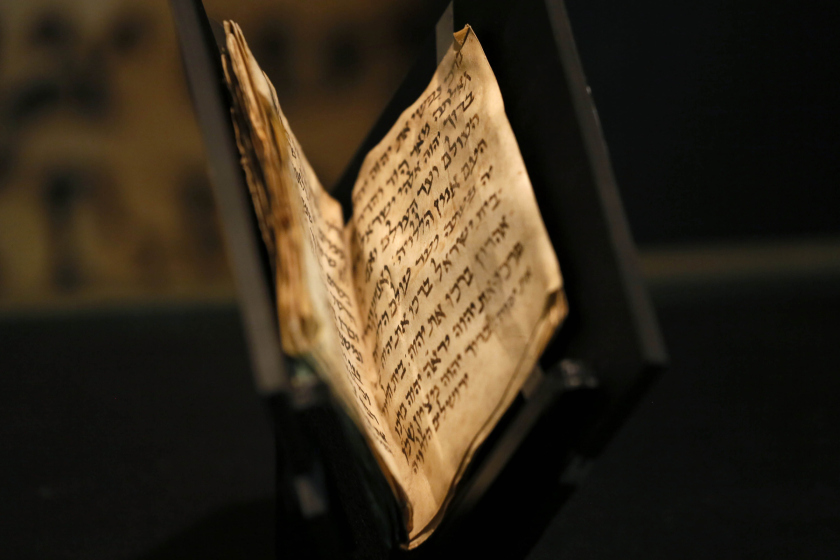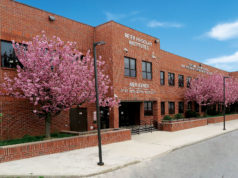
Shehebar Sephardic Center (SSC) places rabbis in new or small communities around the globe. These rabbis are linked together through Rabbi Sam Kassin at the SSC yeshiva in the Old City of Jerusalem. Many of them perform multiple duties. They are shokhets, sofers, congregational rabbis, hazanim, mohelim, and mashgiachs, often all rolled into one person. They perform weddings, teach Jewish children, prepare boys for bar mitzvahs, advise community members, give classes, oversee kashrut and many other duties.
The following story is a first-person account from Rabbi Jonathan Francis Goldschmidt, an SSC rabbi recently placed in Cochin, India.
I had been studying at Midrash Sephardi in the Old City since returning from South Africa. It was just a few months before that my son Asher David was born, and I spoke with Rabbi Sam Kassin, about my job options.
I had studied at a variety of yeshivot, including the Leshem Yeshiva in Jerusalem focusing on philosophy, mysticism, and Jewish law. However, in order to pursue semicha, I was referred to Midrash Sephardi, the rabbinical program of Shehebar Sephardic Center, to study under Rabbi Yaakov Peretz, whose books on halakha inspired me and had very clear explanations

When our latest child, Asher David was born at home, our lives began to focus on our new baby and I found myself less at kollel than usual. Until one day, Rabbi Kassin asked me if I would fly to Cochin, in Kerala, India for a job interview with Star-K Kosher. The job was a mixture of kosher food production auditing and running the Paradesi Synagogue in Jew Town (a quarter of Old Cochin) one of the oldest synagogues in the commonwealth.
My wife and I had previously been involved with the Muizenberg Synagogue in Cape Town, South Africa. We had experience running small communities both in South Africa and in Jerusalem. We saw this as an amazing once in a lifetime opportunity to travel to India and to provide support for the Jewish travelers visiting Cochin
Upon entering the synagogue, my first impression was of awe and real inspiration. I saw the original Torah scrolls in their silver covered wooden boxes. I walked over the original ceramic tiles, a gift from the emperor of China to the Maharaja of Cochin in the 1500s.
The Synagogue had been lovingly cared for by Joy, a local Indian, whose grandfather, father, and now his son have spent their lives dedicated to the care and maintenance of the synagogue. In the center before the Ark burnt a singular Ner Tamid (eternal light), lit with coconut oil as a symbol of his family’s ongoing dedication to the Jews of Cochin, who had once numbered in the thousands and dwindled now to only a handful
Whilst I took in the enormity of the beauty and majesty of the synagogue, my contact from Star-K, Rabbi Joel Weinberger, took me carefully through the inspection process that is vital for the many food products regularly imported from India. After a few more trips to India to train in local kashrut and to train to take on the services of the synagogue, we decided on a trip with my entire family for Rosh Hashanah, Yom Kippur and Sukkot.
It was essential that my wife, Elisheva, who had never been to India, be comfortable with the conditions and with the long-term reality of living there with two small children. We spoke to many rabbis including Chabad couples who had been posted in India for long periods of time, got the necessary vaccinations and planned our trip.
Before we left, we collected a Kosher Sefer Torah from Midrash Sephardi in the Old City to take to India with us
For me, this posting in India has been a return to self. I grew up in a family where my mother and father had extensively travelled in India. I grew up with stories of the streets of Delhi and the smell of my parents’ suitcases when they would return from their trips. My mother would cook excellent Indian food, and I had travelled to the north with my father by train and been deeply moved by this
As a family, it has been a wonderful experience. We were honored to bring a new Sefer Torah to the rebuilt Kadavumbagam Synagogue in Ernakulum and with the 450th anniversary celebration of the Paradesi Synagogue in Fort Kochi
Constructed in 1567, it is one of seven synagogues of the Cochin Jewish community in the Kingdom of Cochin. Paradesi is a word used in several Indian languages, and the literal meaning is foreigners. It was applied to the synagogue because it was built by Sephardic or Spanish-speaking Jews, some of them from families exiled in Aleppo, Safed and other West Asian localities. It is also referred to as the Cochin Jewish Synagogue or the Mattancherry Synagogue. It is located in the quarter of Old Cochin known as Jew Town, and is the only one of the seven synagogues still in use.
No one has been more supportive and dedicated than my amazing wife Elisheva, as she now runs the community, the mikveh and has set up a kosher kitchen that feeds many Jewish travelers.
We know that this placement is an amazing opportunity to do something really unique. We have met incredible people and already forged deep, meaningful relationships. Although we are only in the beginning of this Indian experience, we feel very privileged to have been considered for it and are genuinely excited to see how it will develop.q



